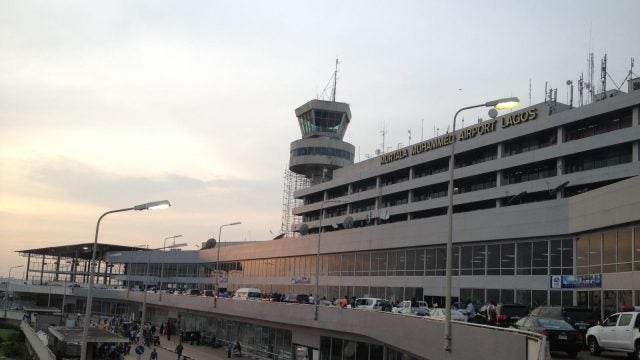Title: Uncertain Days for Scholars as Sino-U.S. Tensions Rise
Cultural and educational exchanges between the United States and China have become pawns in an increasingly fraught relationship. But maintaining and deepening these ties will prevent a return to the dangerous mutual ignorance of the Cold War.
In July, the Trump administration outlined plans to end the Fulbright program academic exchanges with China and Hong Kong. The move was one of several ways in which cultural engagement has been targeted by the Trump administration amidst rising tensions between Beijing and Washington. Nationalists in both the United States and the People’s Republic of China (PRC) celebrated the move, as they did the State Department’s cancelation of the Peace Corps program in China. Some American scholars of China see these recent developments as a passing moment in an otherwise resilient relationship, while others are concerned about what they might portend for coming months and years.
Reacting to the Fulbright decision, Emily Baum of the University of California, Irvine wrote to the author:
From its inception, the Fulbright program was built on the belief that firsthand knowledge of another country would promote mutual understanding and peaceful engagement. By eliminating a major avenue of cultural exchange, the Trump administration is not only depriving scholars of a valuable opportunity to foster professional relationships and pursue sustained research, but they are also driving a deeper wedge between China and the U.S. at a time when xenophobia is already running high. [1]
The Fulbright cancellation is just one item in a long list of recriminations, retaliations, and self-inflicted wounds between Beijing and Washington that includes expanding tariffs, expelling journalists, shuttering consulates, imposing economic sanctions, escalating rhetoric from state organs, and more. Some see the relationship in a state of freefall, and nationalists on both sides seem content to watch or even accelerate the fraying of relations.
Tension between the two governments is not new, from fighting in the Korean War to thirty years without fully normalized relations (1949–1979). Since the 1980s, the economic liberalization of China has been welcomed by Western countries including the United States, which have sought to benefit from the dynamic growth of the Chinese economy and have expressed hopes for a political liberalization to follow. In the past two decades, Washington has expressed concern about Beijing’s growing role in Asia and the Pacific region, and tensions have risen around numerous issues including Beijing’s maritime claims in the South China Sea. The Trump administration has carried forward the Obama administration’s foreign policy anxiety about a rising China—an anxiety that is also voiced sharply in the Biden campaign. But the Trump State Department differs from its predecessor in taking a largely unilateral and erratic approach to relations with Beijing, which has inflamed nationalism in both countries.
Unpredictable developments like the Fulbright cancelation and failed efforts to expel international students in the U.S. have been alarming. Baum continues:
This is the first time in my experience that heightened tensions between Beijing and Washington have so directly affected scholarly engagement. Many academics are afraid to critique China for fear of being denied visas or harassed by students online. At the same time, increased restrictions on visas issued to Chinese scholars is greatly damaging opportunities for intellectual collaboration.
In the PRC, the ascent of Xi Jinping has come with a chilling effect among Chinese intellectuals and also in popular discourse, with an emphasis on Xi’s personal leadership and his tendency toward authoritarianism on issues like Hong Kong. The official salvos from Chinese Foreign Minister Wang Yi and Secretary of State Mike Pompeo have become deeply polarized.
Some American scholars of China see parallels to the Cold War past and point to the significant role of China experts in that era. “I am old enough to remember the lead-up to the [1972] Nixon visit,” Andrew Nathan[2] of Columbia University told the author:
In the mid-60s, scholars like A. Doak Barnett at Columbia and John K. Fairbank at Harvard played large public roles in shaping public opinion about the need to find a way to establish connections with China. They participated in Senate foreign relations committee hearings led by Senator J. William Fulbright. They had quite a strong long-term influence. This was also the time when the National Committee on U.S. China Relations was established—prior to the Nixon trip—with a lot of input by academics.
In 1971, Paul Pickowicz[3] of the University of California, San Diego was among the earliest American scholars invited to the PRC, traveling as a member of a delegation of young scholars. In an email to the author, he recently said:
The main difference between now and the “Cold War” period is that everyday people in both the U.S. and China know so much more about each other. We absolutely must maintain and deepen these relationships and everyday interactions. They challenge and even derail official pronouncements and behavior.
Concerning the public role of scholars in the midst of a polarized discourse today, Pickowicz said, “Scholars in the U.S. and China need our ongoing, honest and open interactions more than ever. Naturally, we want to resist censorship, and neither do I want to engage in self-censorship. We can’t obsess about ugly ideologues putting our words to their own abhorrent usages.” Work by scholars like Pickowicz, Nathan, and other scholars of China can be critical of some of Beijing’s policies while also not touting the official position of the current U.S. administration. But scholars of China today write and teach in the midst of a national conversation regularly injected with anti-intellectual and anti-free speech diatribes against higher education from the Trump White House, as well as more ominous nationalist currents.
As with numerous issues under the Trump administration, particularly the COVID-19 pandemic, racism has further poisoned conversations between the United States and China. Morris Rossabi[4] of Columbia University and Queens College, notes, “There is an anti-Chinese and indeed an anti-Asian bias developing [in the United States], which I find alarming. The [U.S.] government and parts of the media are contributing to this anti-Chinese aura.” Minxin Pei[5] of Claremont McKenna College also points out the distinct challenge of racism in the current global discourse on these issues as it is directed at ethnically Chinese scholars in the United States and around the world. Pei notes that for this group, any criticism of a US administration or policy may give rise to acutely racist questions of “where one’s loyalty lies.” Recent months have seen a global reckoning with aspects of the racist heritage of the United States and many other countries, though whether and how this might impact U.S.-China relations are not yet clear. Robust intellectual exchanges and personal interactions in the classroom certainly can mitigate the nationalistic forces that would feed the flames of racism.
Writing to the author about his experience in the classroom, Jeremy Brown of Simon Fraser University in British Columbia said:
Chinese students in Canada have diverse views and backgrounds. Some are pro-CCP, pro-Xi Jinping, and get defensive when sensitive topics or critical views get aired in class. Other Chinese students are critical of the CCP (and were anti-CCP before leaving China because their parents taught them how to be anti-CCP). They want to discuss sensitive topics and want to argue against the pro-CCP students. This diversity is delightful and is grounds for optimism when I listen to ordinary people instead of listening to government spokespeople.
Pickowicz, also an optimist, notes, “At the state-to-state level, intervals of scary tension come and go. True, there are complex systemic problems, fueled by old-fashioned ultra-nationalism. These have to be confronted and resolved at various levels of engagement.”
Almost fifty years ago, Kissinger’s and Nixon’s visits to China were successfully organized in secrecy amidst outward expressions of hostile rhetoric in official exchanges between Beijing and Washington. Then the thaw in relations that ensued allowed countless more channels between the two countries to open up on an institutional and individual level.
Today, sour official relations are again on public display, but this time the prospect of any productive diplomacy behind the scenes seems unlikely due to the flamboyance and impatience of the Trump administration, not to mention its difficulties with leaks and diplomatic inexperience. While the Fulbright and other exchanges between the United States and China are being systematically disrupted and threatened, other avenues of exchange will hopefully endure and serve to mitigate worsening relations.
In recent decades, presidential elections have seen a pattern of China-bashing by both Democratic and Republican candidates. A Biden presidency would most likely see a return to a more multilateral and even-keeled American foreign policy, which would not mend all frayed ties, but could stabilize the relationship with China while also reassuring Washington’s allies in the region. A more traditional approach to diplomacy would find areas of cooperation, and would most likely preclude the sudden disruption of channels of cultural and educational exchange. The U.S.-China relationship is in flux, and nurturing these exchanges will help prevent a return to the mutual ignorance and dehumanization of the Cold War.
. . .
Jeremy A. Murray is Associate Professor of History at California State University, San Bernardino. His most recent book is China Tripping: Encountering the Everyday in the People’s Republic (co-authored and edited with Perry Link and Paul Pickowicz, Rowman & Littlefield, 2019). The author thanks all quoted scholars for their written replies, cited above.
[1] Emily Baum is Associate Professor of History at University of California, Irvine. Her research focuses on the social and cultural history of modern China and the history of medicine, and she is author of The Invention of Madness: State, Society, and the Insane in Modern China (University of Chicago Press, 2018).
[2] Andrew J. Nathan is Class of 1919 Professor of Political Science at Columbia University. A leading expert on Chinese governance and foreign policy, his numerous publications include China’s Search for Security (with Andrew Scobell, Columbia University Press, 2014), and his writing appears regularly in Foreign Affairs.
[3] Paul G. Pickowicz is Distinguished Professor Emeritus of History and Chinese Studies at University of California, San Diego. He writes on social history and film in modern China among other topics, and his recent books include Filming the Everyday: Independent Documentaries in Twenty-first Century China (co-edited with Yingjin Zhang, Rowman and Littlefield, 2017).
[4] Morris Rossabi is Senior Scholar and Associate Adjunct Professor of History at Columbia University, and Distinguished Professor of History at Queens College. A leading authority on Mongol and Chinese history, he is author of The Mongols: A Very Short Introduction (Oxford University Press, 2012).
[5] Minxin Pei is Tom and Margot Pritzker ’72 Professor of Government and George R. Roberts Fellow at Claremont McKenna College. A leading expert on Chinese politics and U.S. China relations, he is author of China’s Crony Capitalism: The Dynamics of Regime Decay (Harvard, 2016).
[6] Jeremy Brown is an Associate Professor of History at Simon Fraser University. He writes about social history in the PRC, and his publications include Maoism at the Grassroots: Everyday Life in China’s Era of High Socialism (edited with Matthew D. Johnson, Harvard University Press, 2015).
Recommended Articles

Africa accounts for approximately two percent of global air travel. Given the continent’s vast size and large distances between major trade hubs, enhancing intra-African air connectivity will be…

An estimated 7.9 million Venezuelans migrated abroad for the long term under President Nicolás Maduro’s rule as Venezuela’s political, economic, and social crises have deepened. Alongside rising Venezuelan migration, migrants…

Amid stalled U.S. federal climate engagement and intensifying transatlantic climate risks, subnational diplomacy has emerged as a resilient avenue for cooperation. This article proposes a Transatlantic Subnational Resilience Framework (TSRF)…